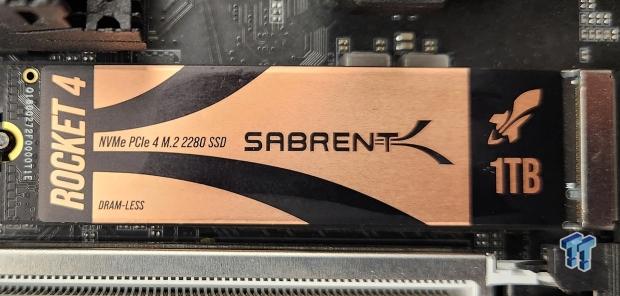
The Bottom Line
Pros
- + Gaming
- + Throughput
- + User experience
- + PS5 compatible
Cons
- - Write transfer rate
Should you buy it?
AvoidConsiderShortlistBuyIntroduction & Drive Details
Faster flash and more advanced controllers have ushered in a new era of powerful PCIe Gen4 DRAMless SSDs. This new generation of power-efficient yet performant and value-targeted NVMe SSDs can saturate the PCIe Gen4 interface with more than 7,400 MB/s throughput. This new crop of DRAMless SSDs can deliver better overall performance with only half the channels of its predecessors and do so without the need for expensive onboard DRAM, overall offering the consumer a better value proposition that doesn't skimp out on performance.
The subject of today's review is just such an SSD. Sabrent's new refreshed Rocket 4 1TB SSD is positioned for those who don't need a ton of capacity but still want class-leading performance while at the same time not having to shell out more than $100 to get there. If this describes your needs, Sabrent's 1TB refreshed Rocket 4 SSD is worth a close look.
Sabrent's refreshed Rocket 4 SSDs are powered by Phison's PS5027-E27T DRAMless 4-channel controller:
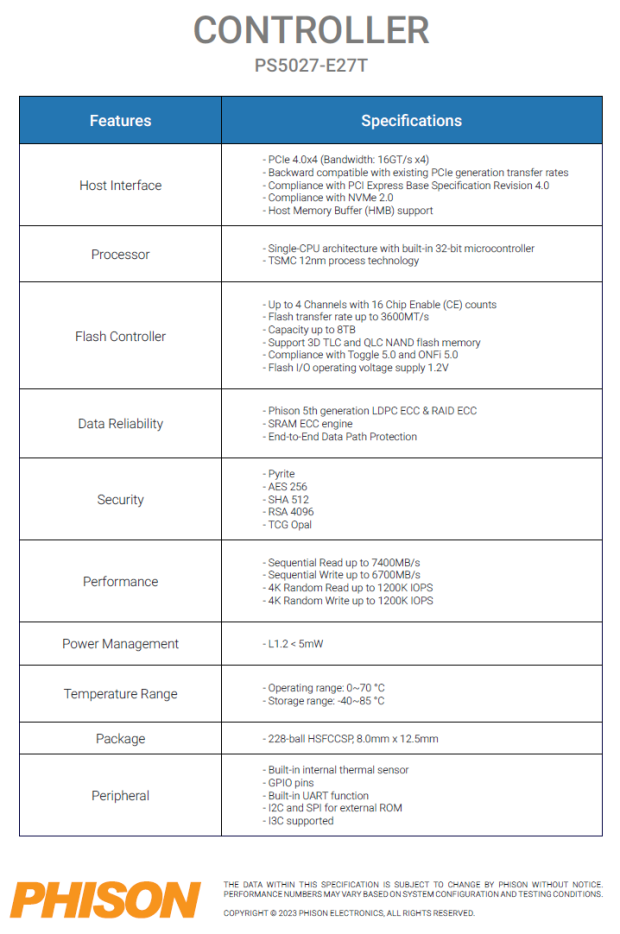
Behind its E27T controller we have a Kioxia 1024Gbit BiCS6 2,400MT flash array, the very same hardware configuration found on its higher capacity sibling Sabrent Rocket 4 2TB we recently reviewed. Despite being lower spec'd than the 2TB model, it still manages to deliver better than most of its competition and, like the 2TB model, is overall significantly better performing than its 8-channel controlled PCIe Gen4 predecessors.
With its preferred single-sided design, 7,400 MB/s throughput, power efficiency, mild thermals and PS5 storage expansion compatibility, Sabrent's new Rocket 4 has a lot to offer. And at the 1TB capacity point we can get all this goodness for under $100, including a free $30 value add of genuine Acronis imaging software. Hard to beat that as we see it.
Drive Details
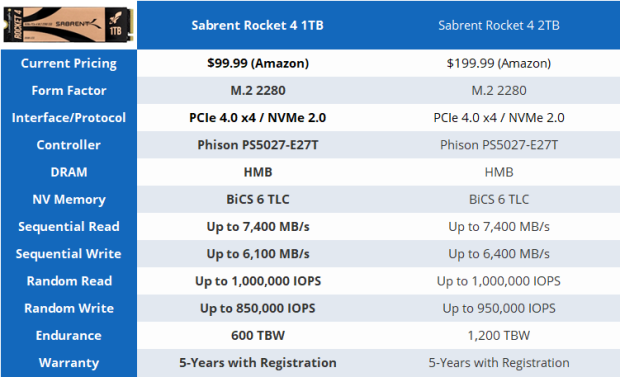
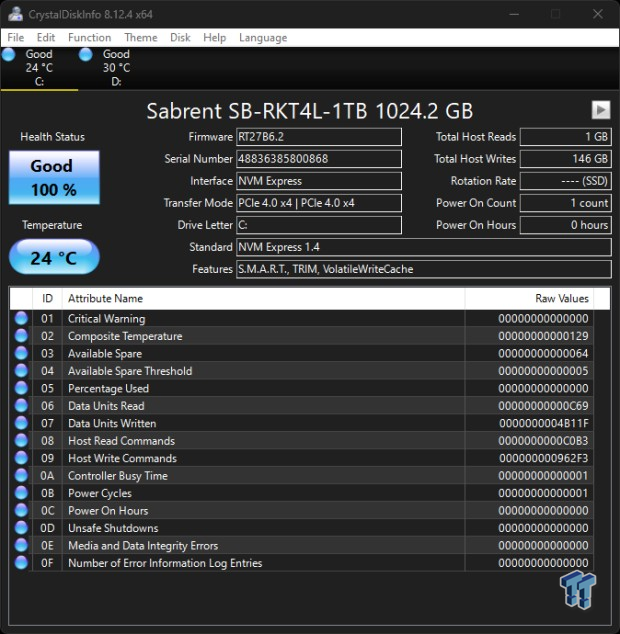
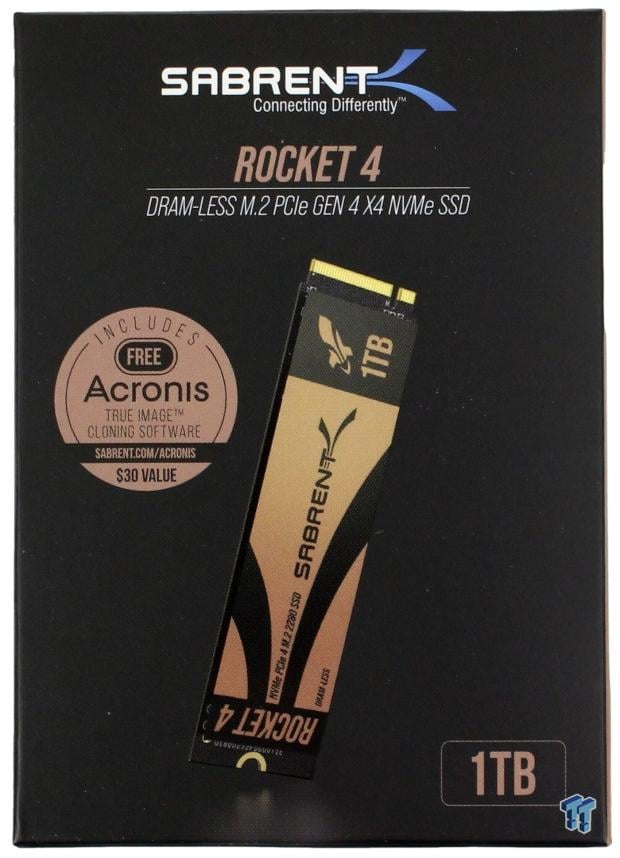
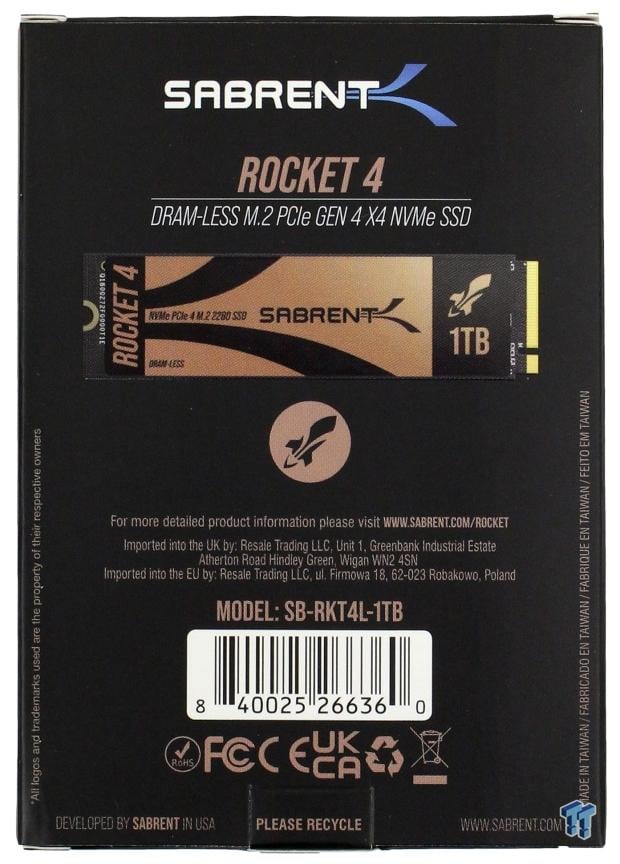


Like all Sabrent SSDs, the Rocket 4 is supported by Sabrent's own free SSD toolbox software, Rocket Control Panel, enabling convenient features such as device registration and firmware updates directly from your desktop. Get it HERE. Additionally, Sabrent offers free Acronis cloning software to complement its Rocket 5 SSDs. Get it HERE.
Jon's Test System Specifications
Intel Test System
- Motherboard: GIGABYTE AORUS Z790 Xtreme X
- CPU: Intel Core i9-14900KS - Buy from Amazon
- Cooler: Alphacool Eissturm Hurricane Copper 45 - Buy from Amazon
- RAM: Patriot Viper Xtreme 5 8000 48GB - Buy from Amazon
- Graphics Card: MSI SUPRIM X RTX 3080 12GB - Buy from Amazon
- Case: PrimoChill's Praxis Wetbench - Buy from Amazon
- Power Supply: be quiet! Dark Power Pro 12 1200W - Buy from Amazon
- OS: Microsoft Windows 11 Pro 64-bit - Buy from Amazon
AMD Test System
- Motherboard: GIGABYTE X670E AORUS Master
- CPU: AMD Ryzen 9 7950X - Buy from Amazon
- Cooler: Alphacool Eissturm Hurricane Copper 45 - Buy from Amazon
- RAM: Sabrent Rocket DDR5 32GB - Buy from Amazon
- Graphics Card: MSI SUPRIM X RTX 3080 12GB - Buy from Amazon
- Case: PrimoChill's Praxis Wetbench - Buy from Amazon
- Power Supply: be quiet! Dark Power Pro 12 1200W - Buy from Amazon
- OS: Microsoft Windows 11 Pro 64-bit - Buy from Amazon
Because we at TweakTown like to be first at everything whenever we can, we will present our storage performance results for the test subject on both 14th Gen Intel and 7000 Series AMD platforms going forward for the foreseeable future. Because Intel still delivers the best real-world storage performance, (Look Here), our running chart will continue to be Intel-based until AMD can deliver better real-world storage performance than its rival.

Sony PlayStation 5 - M.2 Storage Expansion
PS5 Read Performance
With Sony's wildly popular PlayStation 5 console now enabled for M.2 NVMe SSDs to be used as fast storage expansion, we include results for PS5 compatible SSDs we test as a part of our reviews going forward.
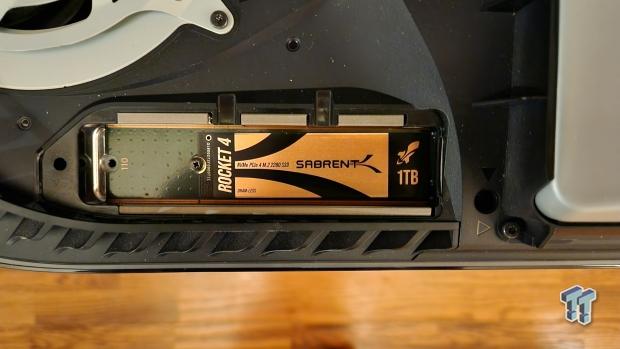
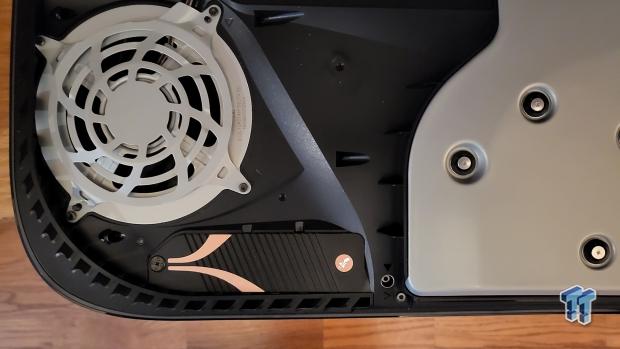
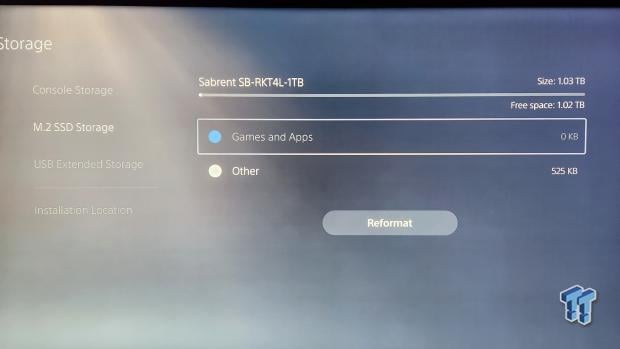
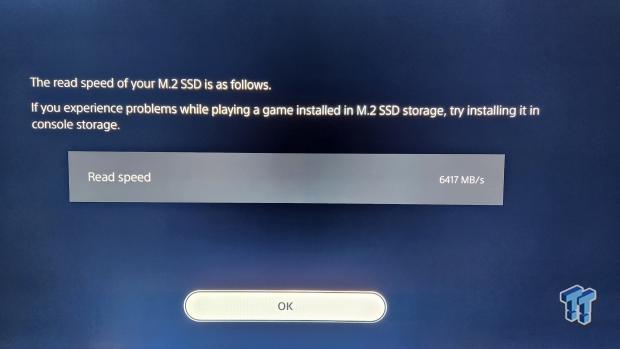
We only chart SSDs that can deliver a minimum of 5,500 MB/s read, which is Sony's original recommendation.
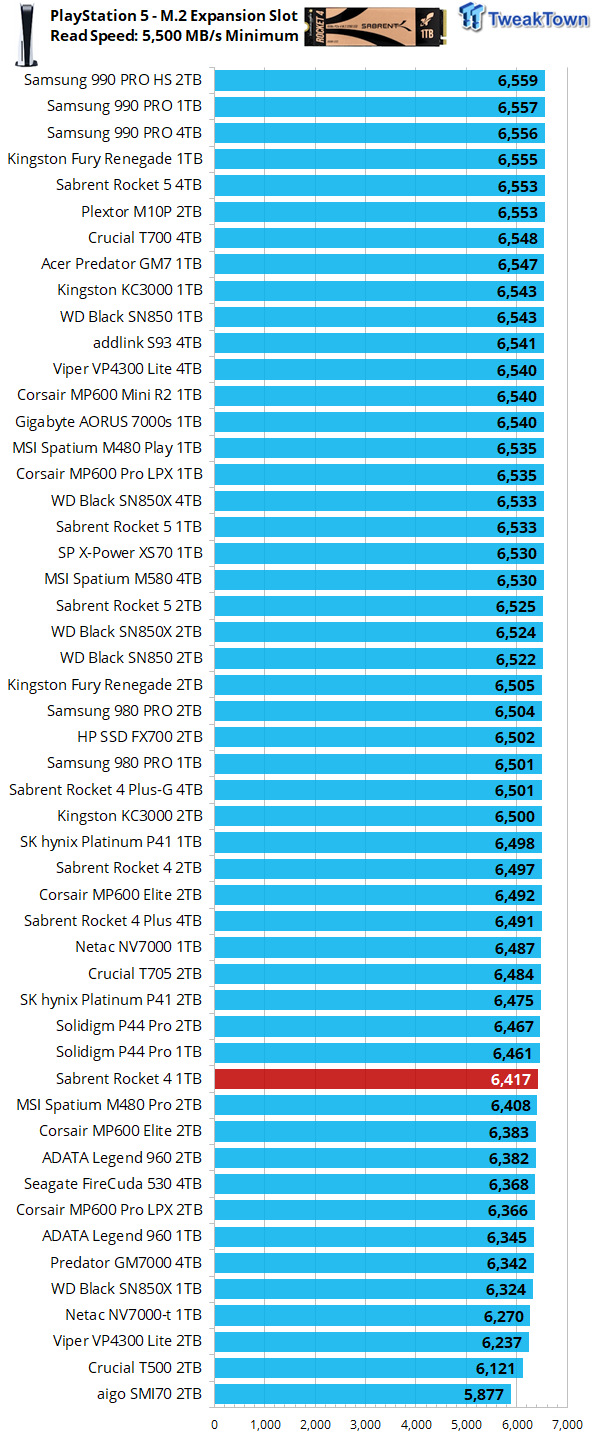
Providing potent performance at 6,417 MB/s, Sabrent's new generation 1TB Rocket 4 is ideal for PS5 storage expansion. In fact, it is exactly the type of SSD we've come to prefer for PS5 storage expansion, because they are cost effective, cool running and single sided.
Synthetic Benchmarks: CDM, Anvil, ATTO
CrystalDiskMark
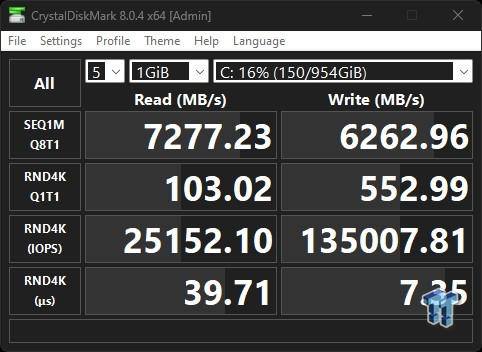
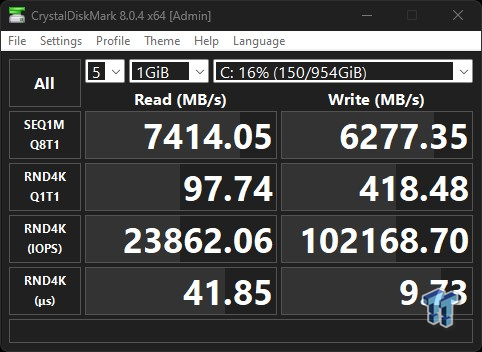
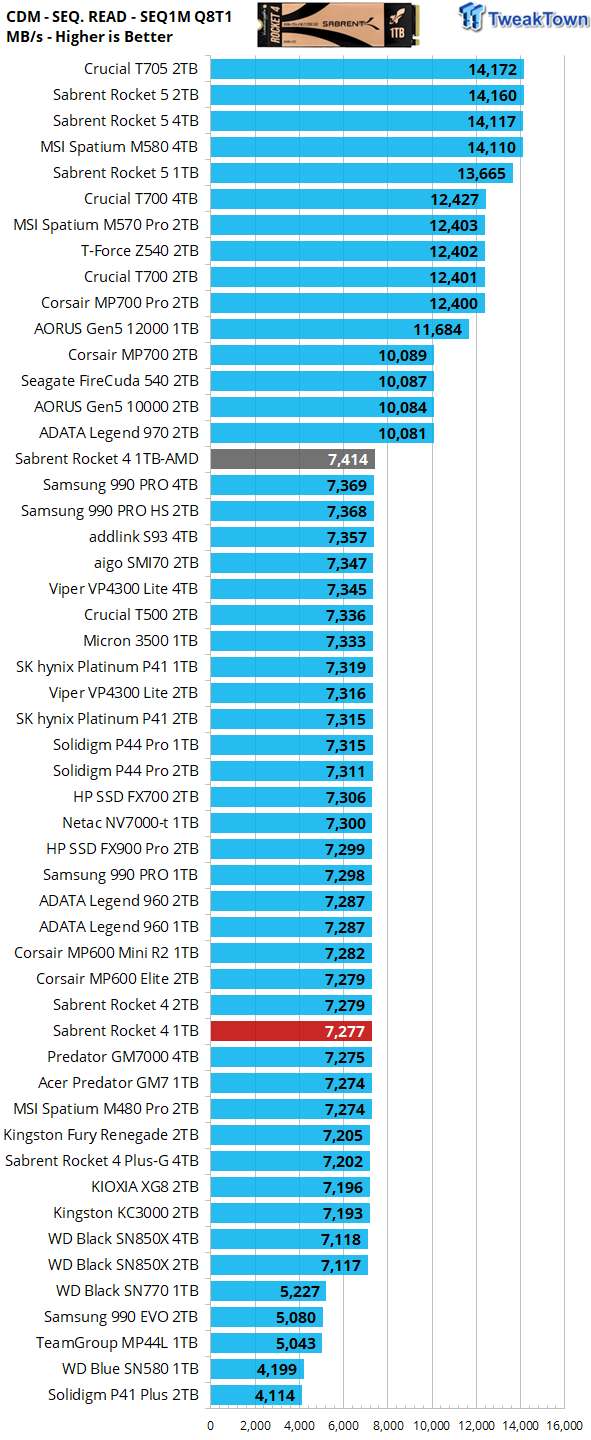
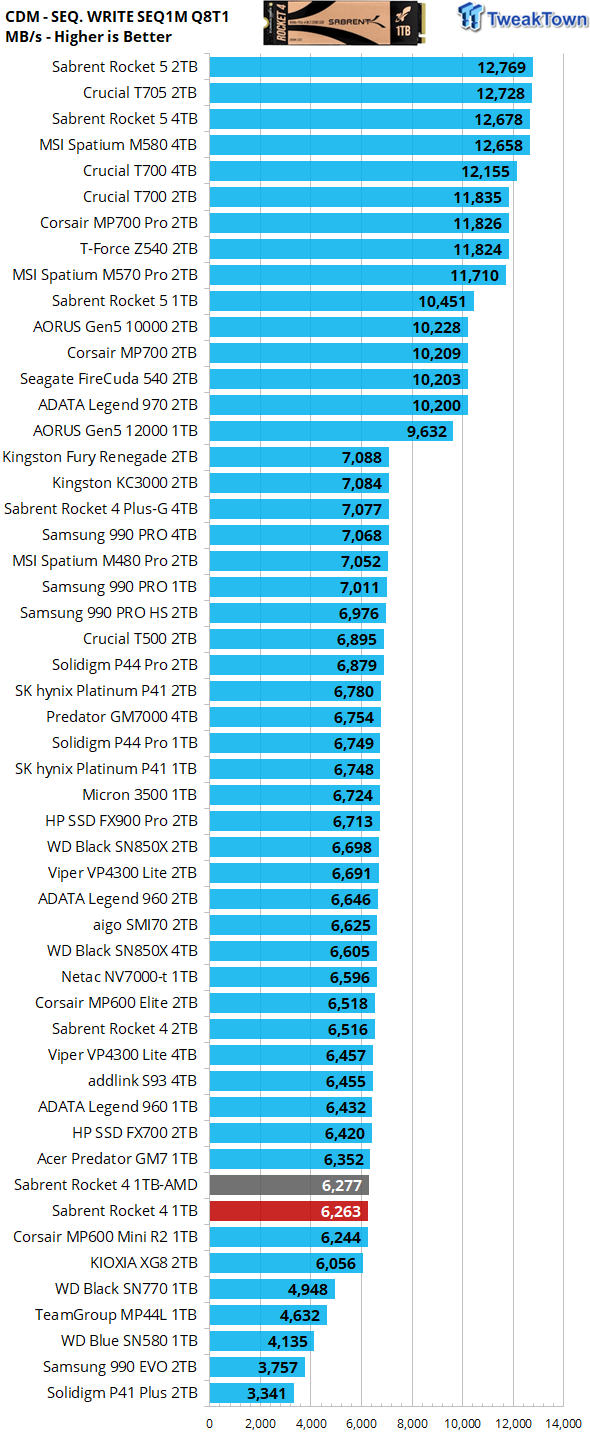
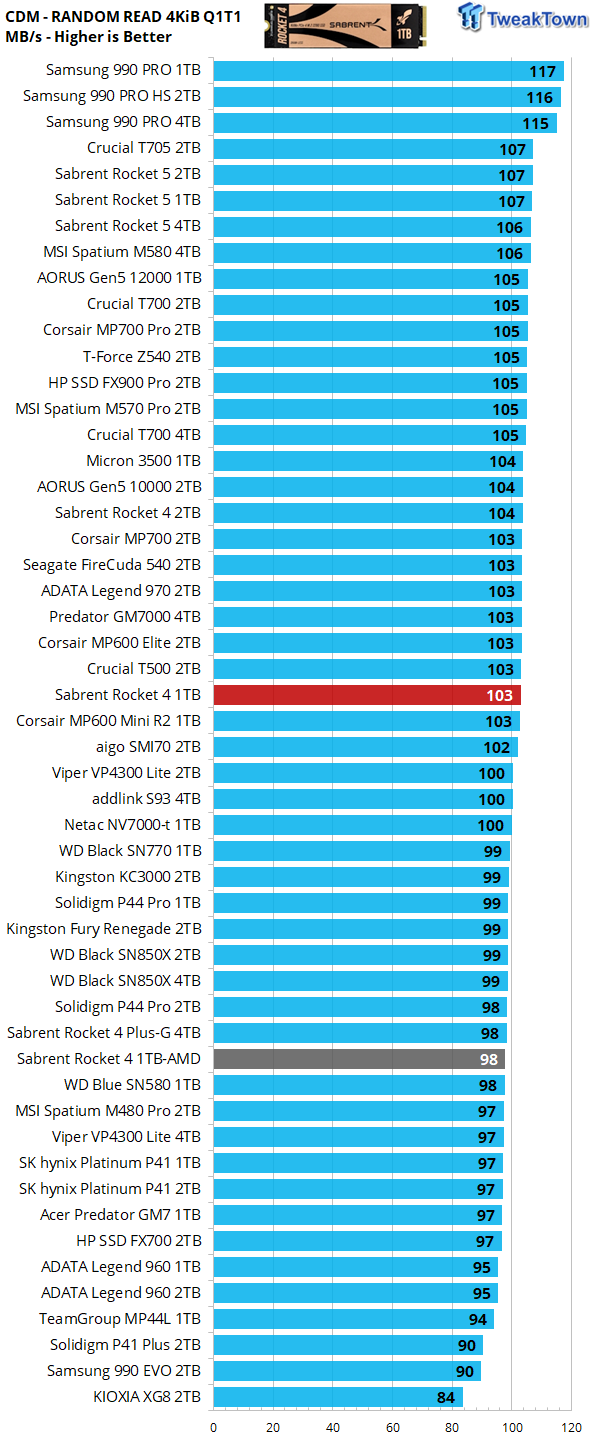
We employ CDM as our standard measurement for both sequential throughput and Q1T1 random read. Here, we find when serving data to the host (read) the 1TB model delivers that same up to 7,400 MB/s throughput as the pricier 2TB model. Impressive. And at 103 MB/s Q1T1 random read, the drive looks like it's well-positioned to deliver excellent gaming and workload performance as well.
Anvil's Storage Utilities
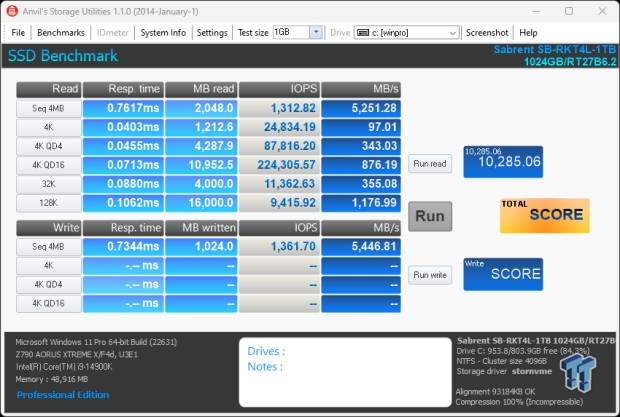
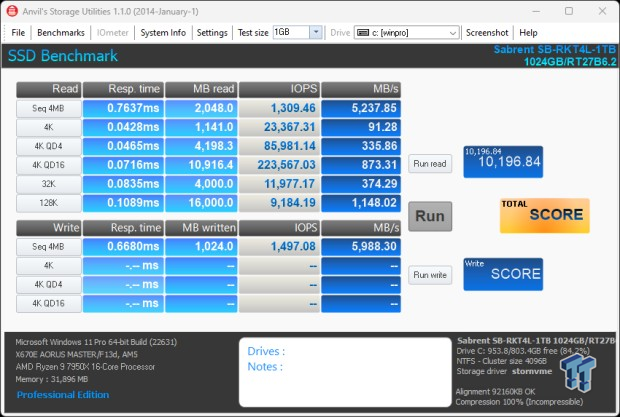
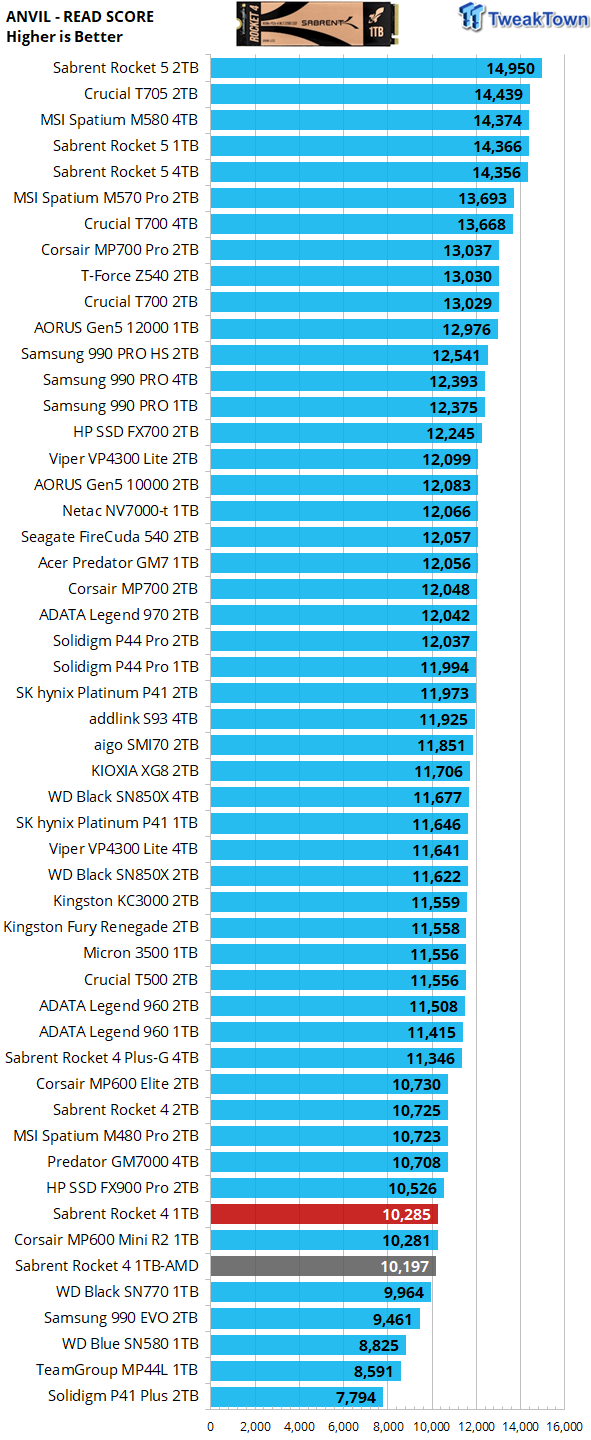
A read score of 10,285 isn't very impressive, but it's still respectable for a 4-channel DRAMless SSD arrayed with BiCS 6 flash and is better than what the 990 EVO can deliver.
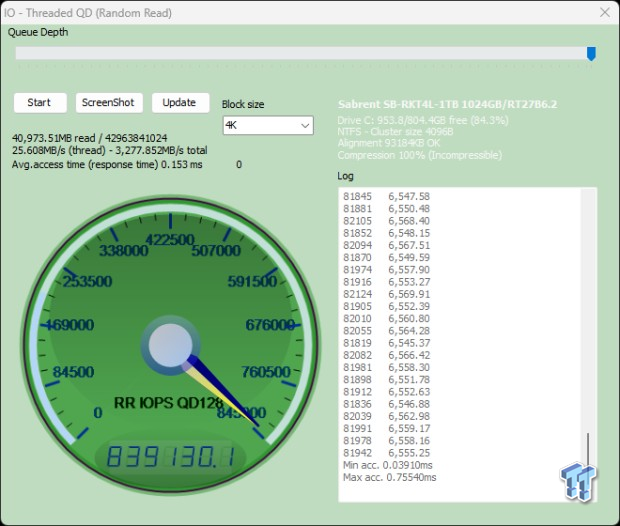
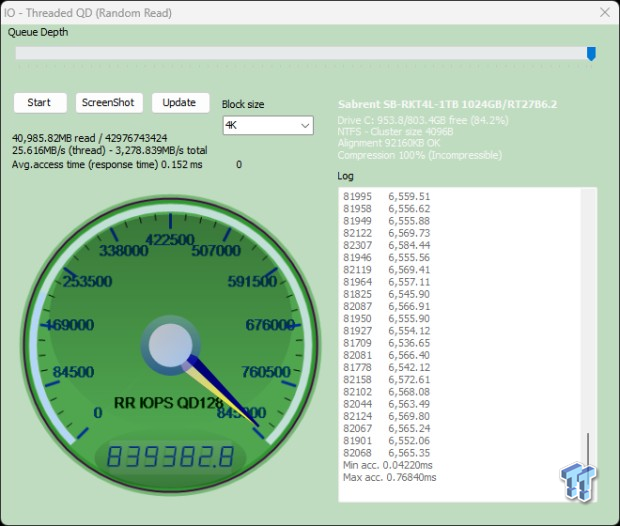
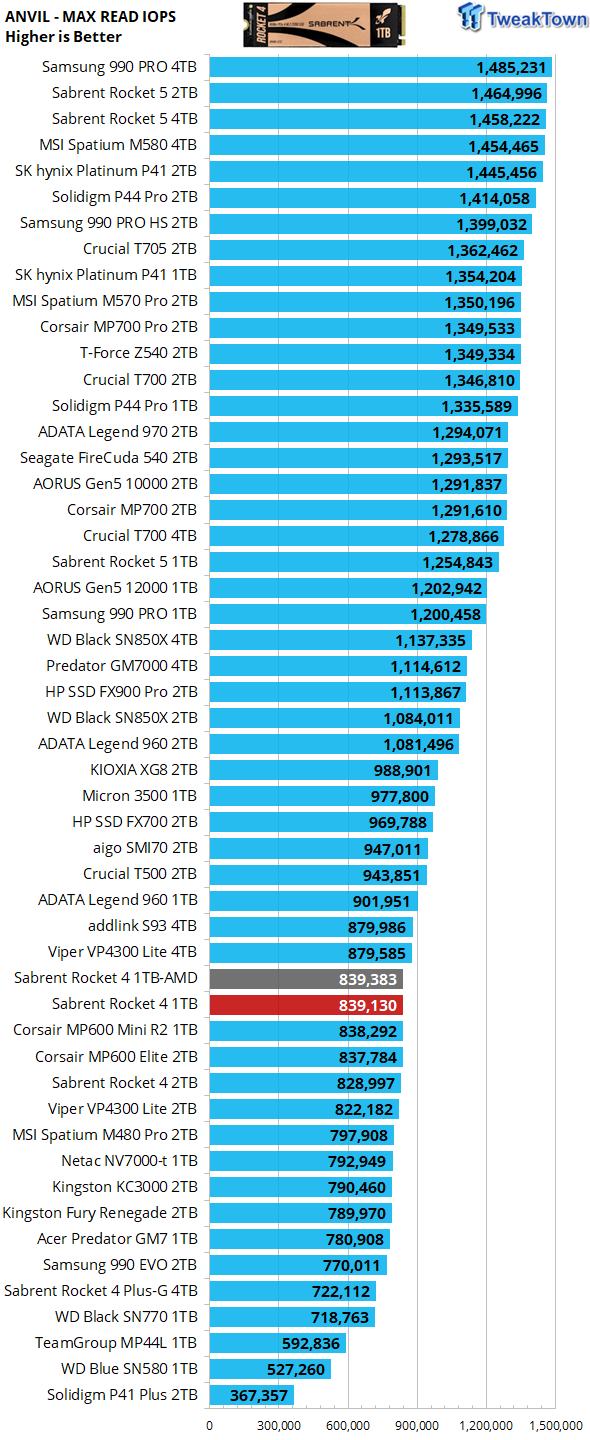
We employ Anvil's random read test as our standard for measuring max random read IOPS. This test is very accurate as it at its core is Iometer skinned over. We test at QD128. At 839K IOPS, our test subject is delivering the most random read throughput we've encountered to date for a 1TB DRAMless SSD. Impressive.
ATTO
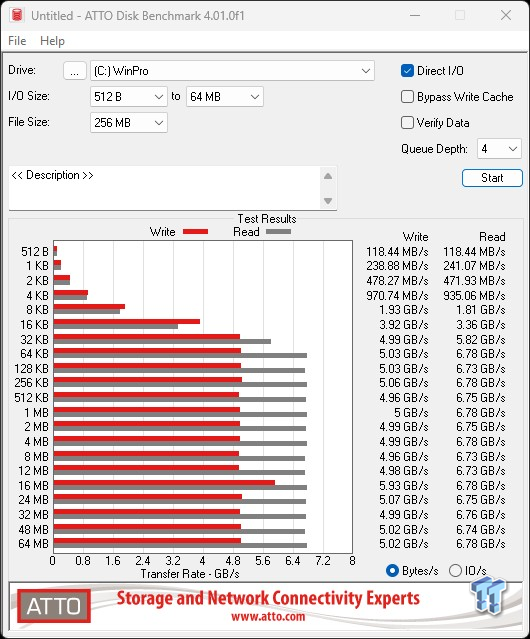
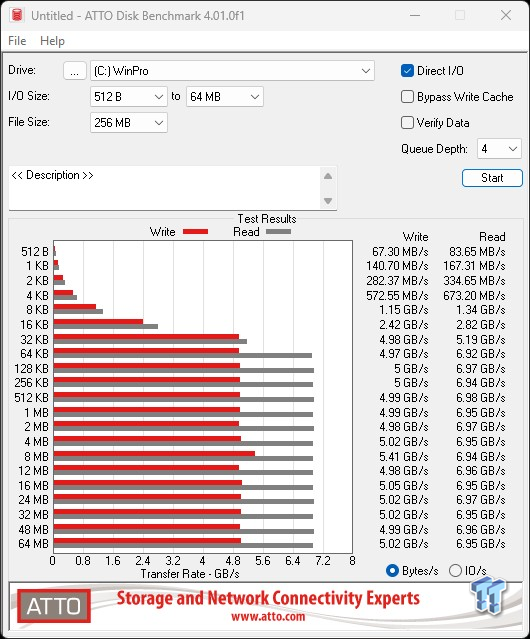
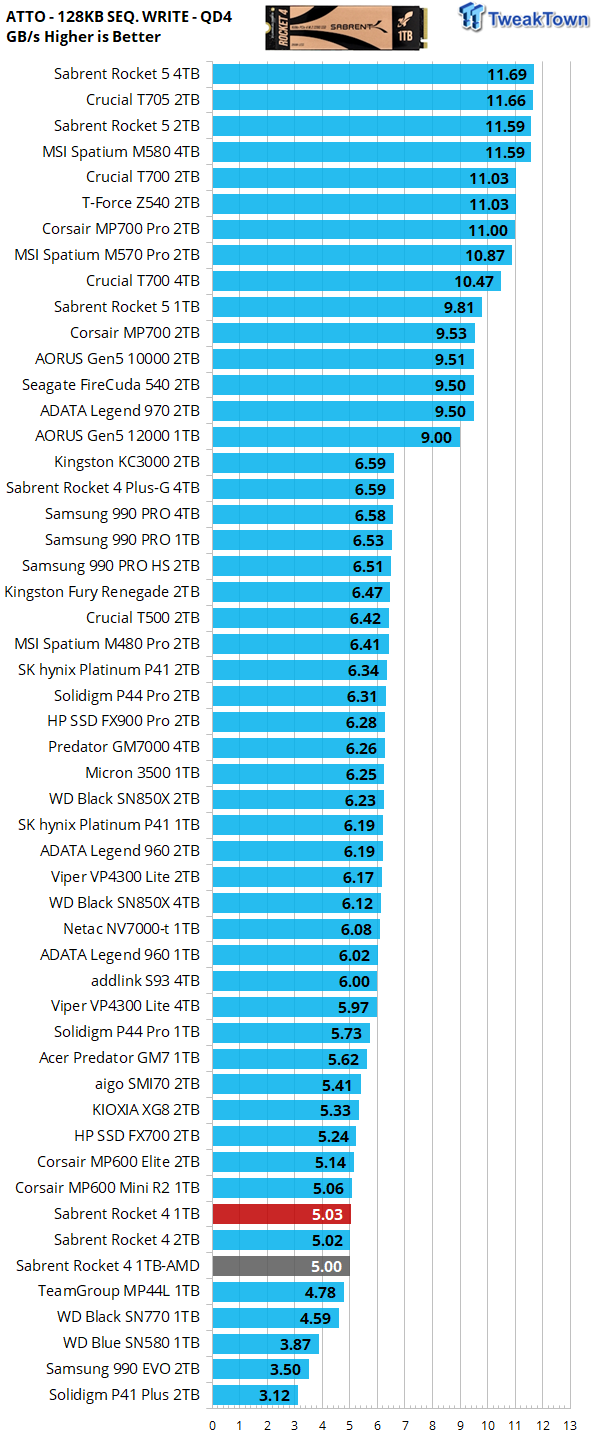
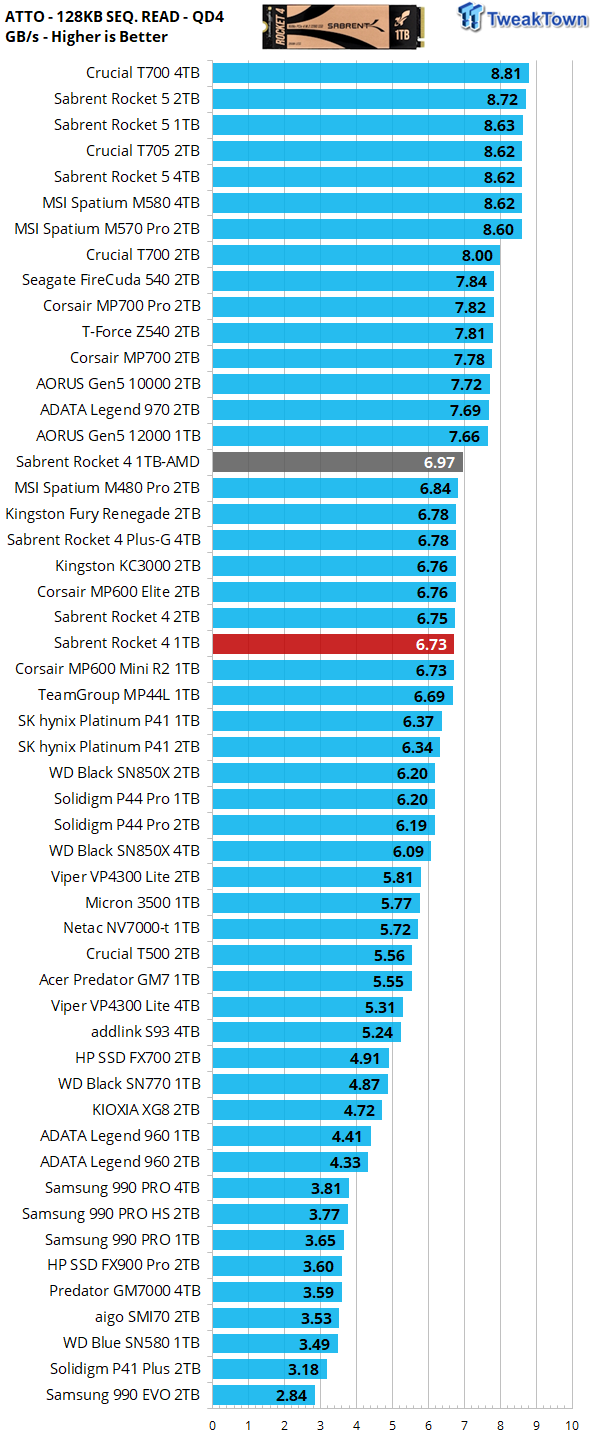
ATTO gives us a clear picture of what transfer sizes a particular SSD favors in terms of sequential throughput. We chart 128K transfers. At a queue depth of four, the 1TB Rocket 4 favors sequential transfers of 64K or larger when serving data to the host (reading) and 64K or larger when programming (writing) data. Peak throughput at small file sizes is exactly what we are looking for and exactly what our test subject is delivering. Excellent.
Real-World Testing: Transfers, 3DMark SSD Gaming Test, PCM10 Storage
Transfer Rates
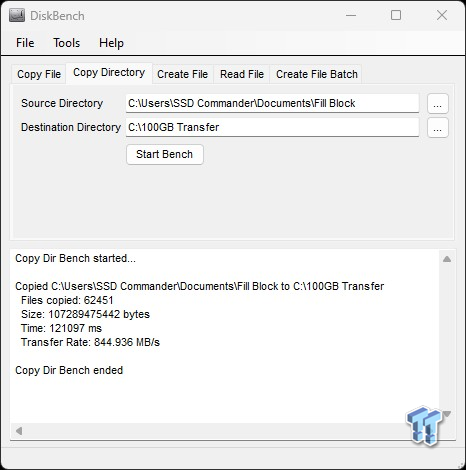
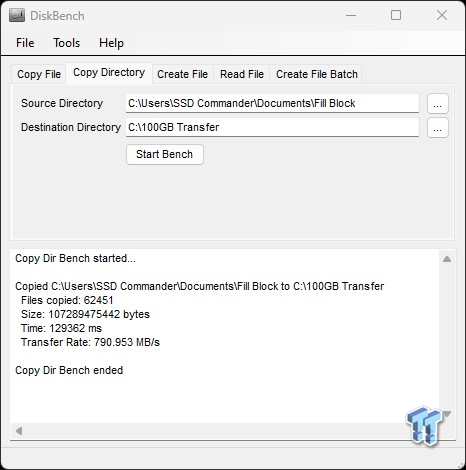
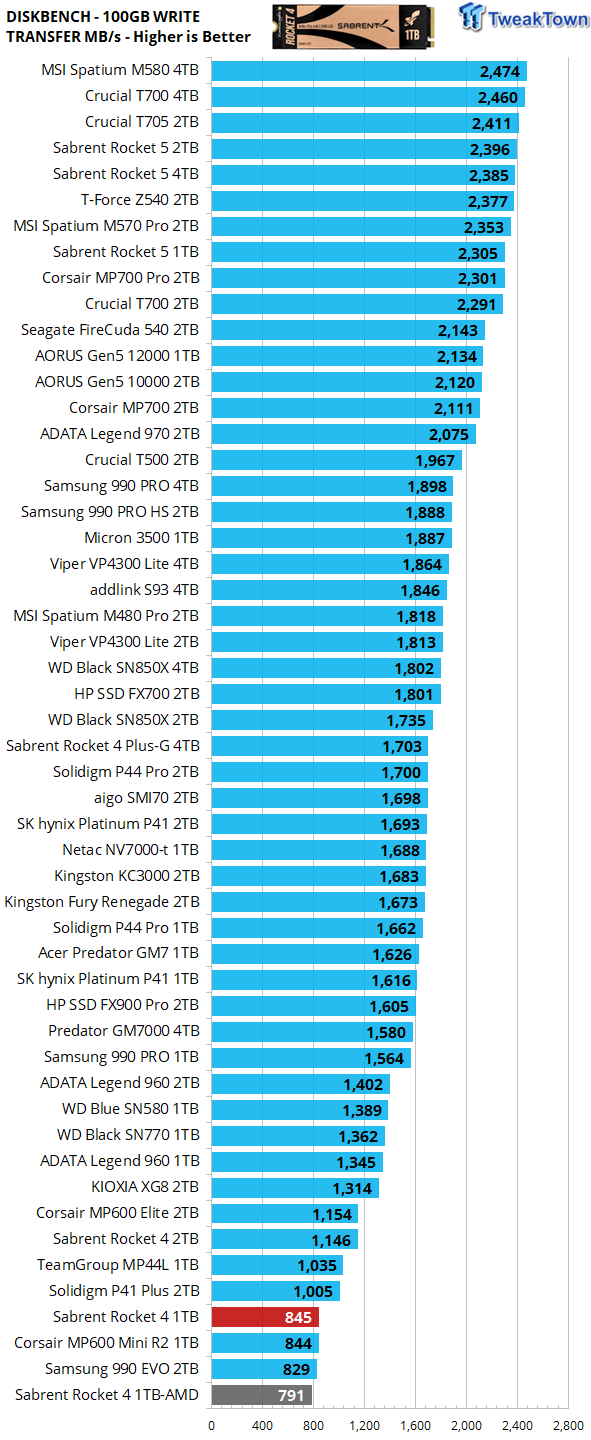
Our 100GB data transfer test is not your ordinary 100GB of data; ours is a crushing mix composed of more than 62K files. Write performance, random or sequential, is an infrequent operation, and as such, we do not consider it to be an important performance metric in the consumer space. An example is how many times a game is installed vs. how many times it's played.
Again, we will reiterate that we don't consider sustained writes to be a performance metric of much importance in the consumer space, but if we had to find one drawback for the drive, we could point to this. However, do take note that it is still better than what the overall most powerful DRAMless SSD, the 990 EVO, can deliver, so it's really just a small ding as we see it.
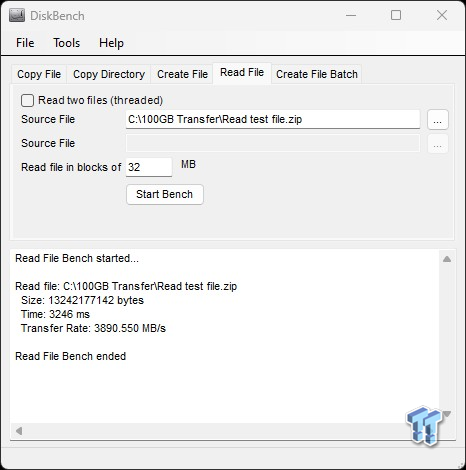
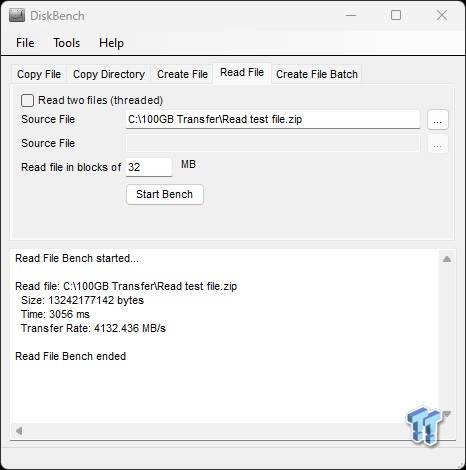
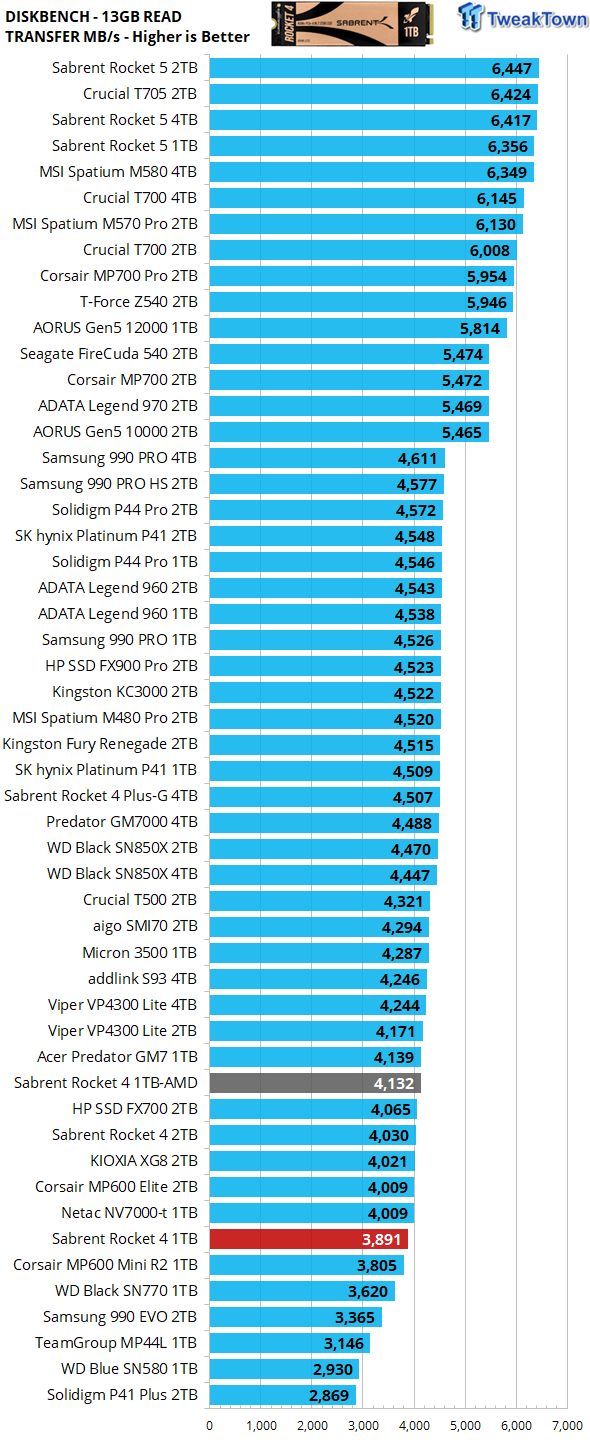
Unlike programming (writing) data, serving data to the host (reading) is typically an important performance metric as it relates to the consumer space. The throughput here is about as expected for a 1TB SSD of this configuration. While it's nothing to cheer about, it is yet again better than Samsung's 990 EVO.
3DMark SSD Gaming Test
UL's newest 3DMark SSD Gaming Test is the most comprehensive SSD gaming test ever devised. We consider it superior to testing against games themselves because, as a trace, it is much more consistent than variations that will occur between runs on the actual game itself. This test is the same as running the actual game, just without the inconsistencies inherent to application testing. In short, we believe that this is the world's best way to test an SSDs gaming prowess and accurately compare it against competing SSDs. The 3DMark SSD Gaming Test measures and scores the following:
- Loading Battlefield V from launch to the main menu.
- Loading Call of Duty Black Ops 4 from launch to the main menu.
- Loading Overwatch from launch to the main menu.
- Recording a 1080p gameplay video at 60 FPS with OBS (Open Broadcaster Software) while playing Overwatch.
- Installing The Outer Worlds from the Epic Games Launcher.
- Saving game progress in The Outer Worlds.
- Copying the Steam folder for Counter-Strike Global Offensive from an external SSD to the system drive.
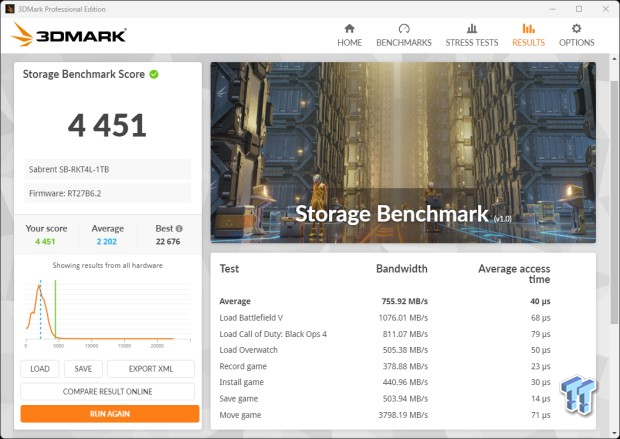
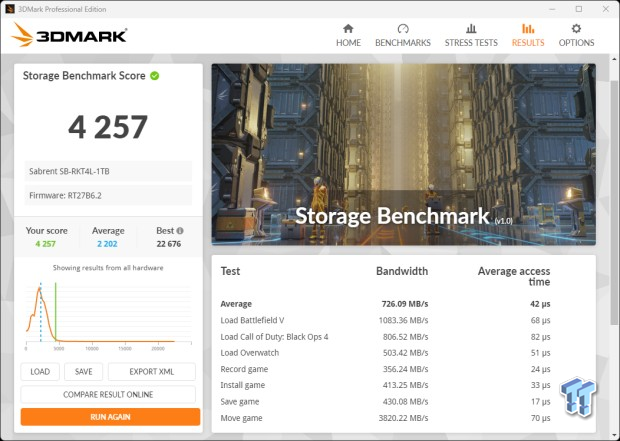
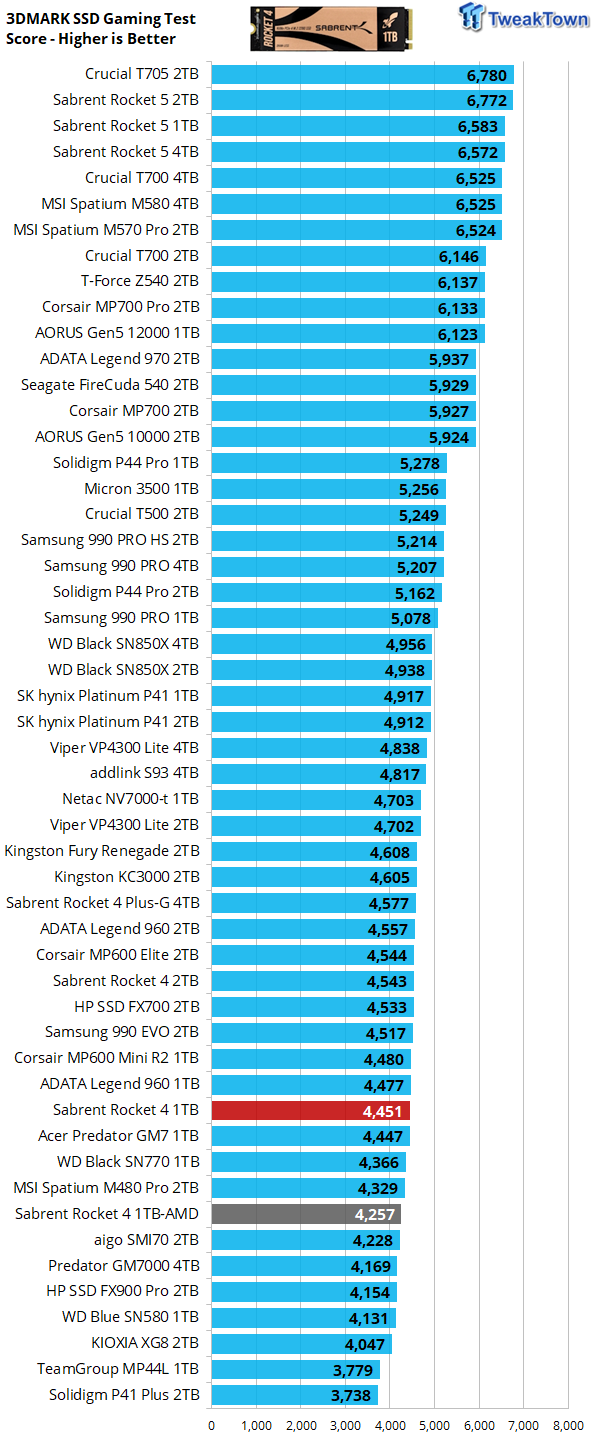
Gaming is a performance metric that matters to most DIY consumers, especially for the enthusiast crowd that TweakTown caters to. A score of 4,451 is indeed exceptional for a 1TB DRAMless SSD. And do keep in mind, the new Rocket 4 comes with Phison's exclusive I/O+ DirectStorage optimized technology baked right in. With it, a properly equipped PC can load up to 60% more gaming data with 99% less CPU utilization. Amazing.
PCM10 Storage Tests
PCMark 10 Storage Test is the most advanced and most accurate real-world consumer storage test ever made. There are four different tests you can choose from; we run two of them. The Full System Drive Benchmark and the Quick System Drive Benchmark. The Full System Drive Benchmark writes 204 GB of data over the duration of the test. These tests directly correlate with mainstream user experience.
PCMark 10 Full System Drive Benchmark
This test writes 204GB data and covers a broad range of common consumer tasks, including booting Windows 10, file transfers, Adobe and Office applications, and startup times for games including Battlefield V, COD Black Ops 4, and Overwatch. Unlike synthetic numbers, this is comprehensive real-world data which is why we use it to rank SSDs in terms of user experience.
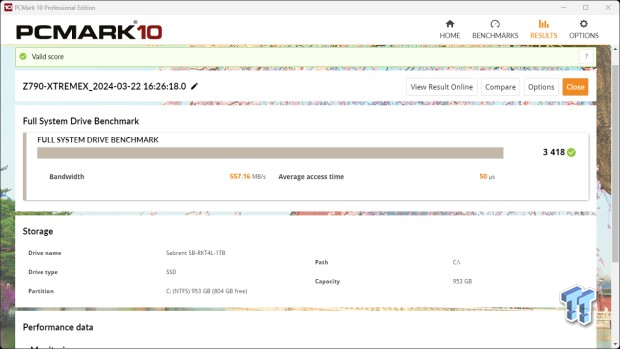
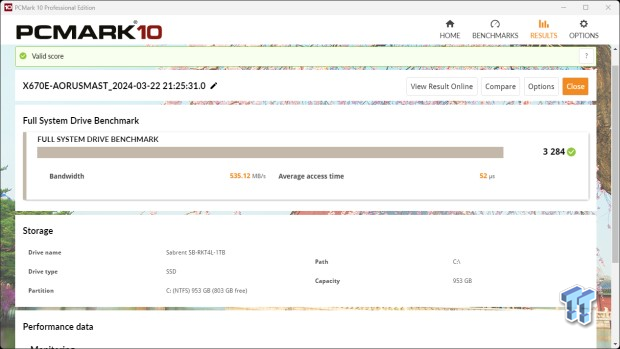
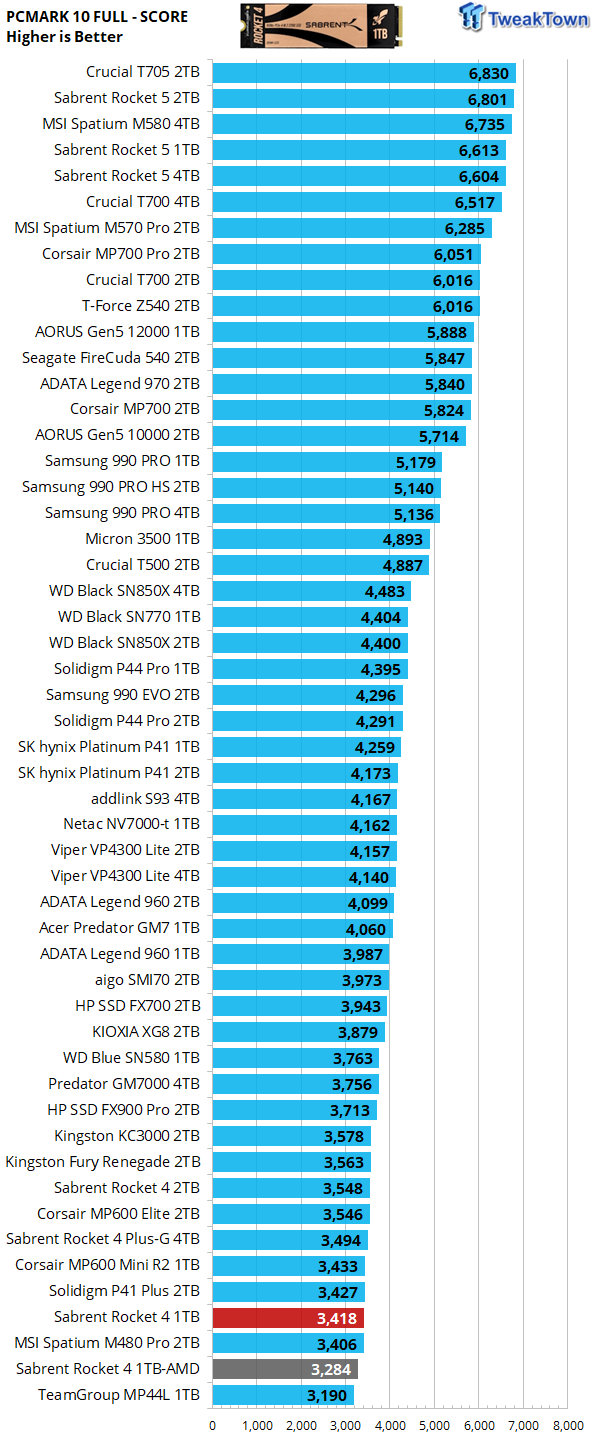
Although a bit slower here than some of its Chinese-made competition, it again delivers equivalent to, or better than, its 1TB PCIe Gen4 predecessors that no longer appear on this running chart.
PCMark 10 Quick System Drive Benchmark
The Quick System Drive Benchmark writes 23 GB of data over the duration of the test.
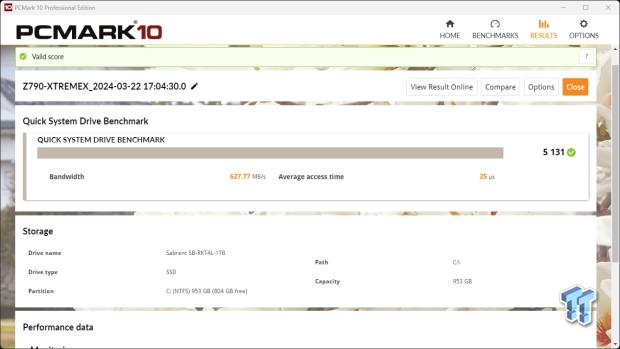
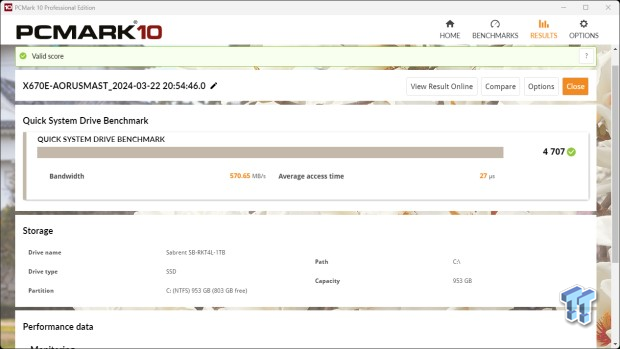
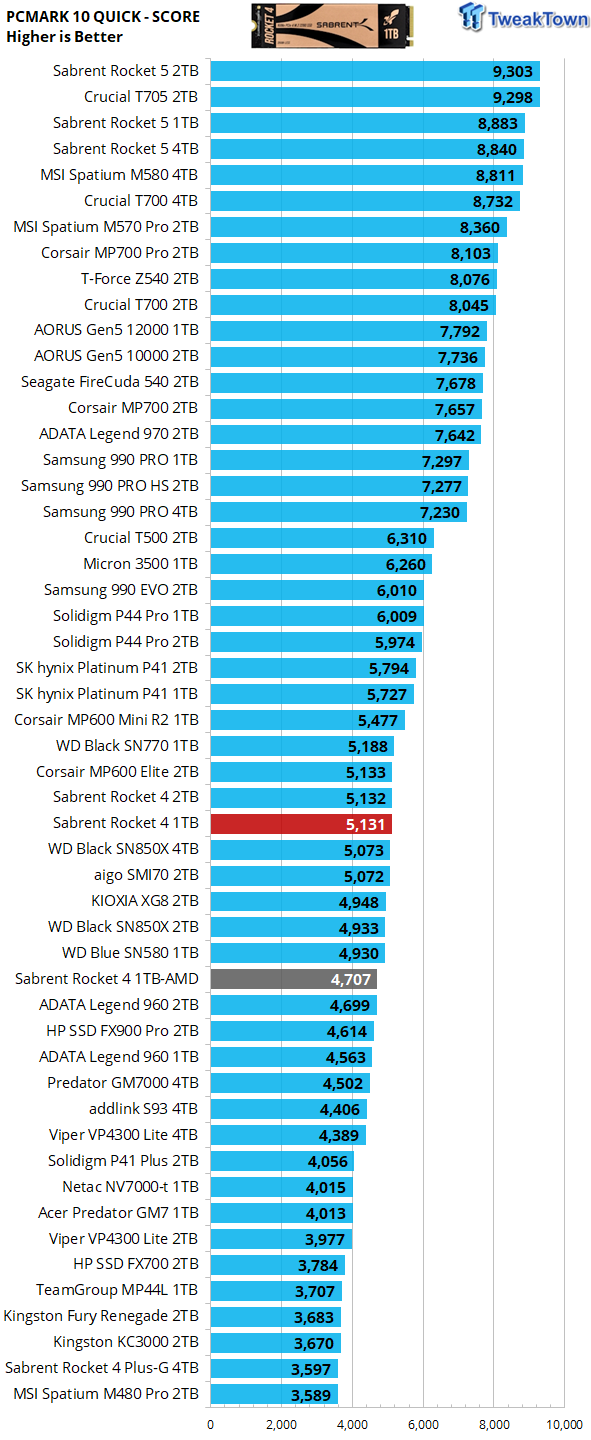
We consider 5K+ here a milestone of sorts, especially for a PCIe Gen4 SSD. Of all the tests we run, we consider this one to be the best reflection of a typical consumer user experience. Here, we find our test subject not only demolishing its Chinese-made competition but also the 1TB model, which is able to equal the performance of the higher spec'd 2TB model. Impressive.
Final Thoughts
As with its 2TB sibling, we believe the new Rocket 4 1TB to be clearly superior to any of its 8-channel predecessors for the same reasons. It's cool-running, power efficient, single-sided, has a better value proposition, and, most importantly, is a better overall performer.
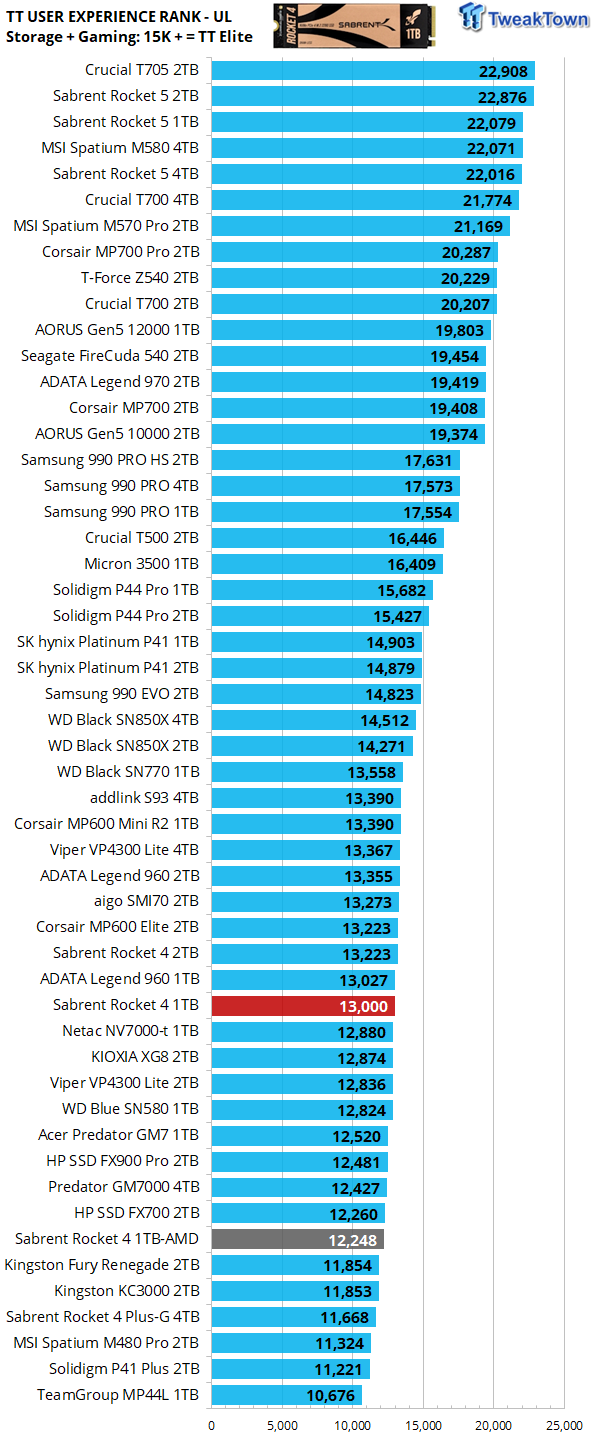
We rank SSDs in terms of overall user experience (performance where it matters most) as expressed by PCMark 10 storage and 3DMark gaming storage tests. We considered a user experience score of 15K or more to verify an SSD as a TweakTown Elite performer. With a user experience score of 13K, the 1TB Rocket 4 ranks above its Chinese-made competition at 1TB, and while lower performing than drives like the 990 EVO and SN770, it can do things that those cannot, such as offer legit PS5 storage expansion.
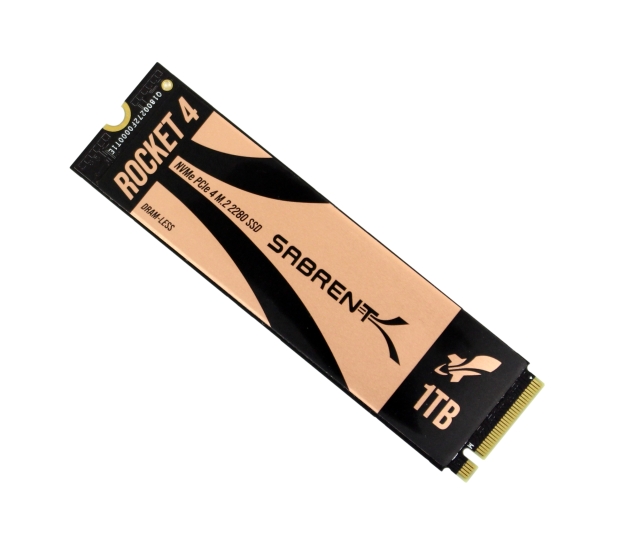
It's cheap to own, comes with nice value adds, and is sure to please on the performance front - well deserving of a TweakTown recommendation.

